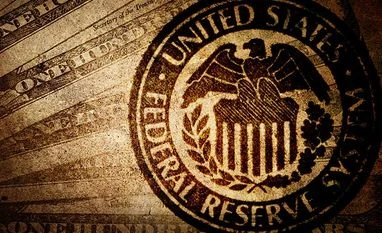Federal Reserve officials on Wednesday continued to flag December as a likely time for interest rates to rise after seven years near zero, with two expressing confidence they will be able to pull off a rate hike smoothly despite fears of an abrupt market reaction.
Investors reacted by increasing the odds for a rate increase next month to 72 percent, from 64 percent on Tuesday, based on interest rate futures prices.
Cleveland Fed President Loretta Mester repeated her position that the U.S. economy is now strong enough to absorb a modest policy tightening. Atlanta Fed President Dennis Lockhart, sitting alongside her on a panel in New York, said global financial markets have settled since the August turmoil that caused the U.S. central bank to delay raising rates.
"I am now reasonably satisfied the situation has settled down ... So I am comfortable with moving off zero soon, conditioned on no marked deterioration in economic conditions," Lockhart told a conference of bankers, traders and regulators.
"I believe it will soon be appropriate to begin a new policy phase," he said, adding he will monitor economic data between now and a meeting on Dec. 15-16, for which he has a vote on policy. Mester regains a vote next year under a rotation.
Sentiment for a December hike took firm hold at the Fed's October 27-28 policy meeting, according to meeting minutes released on Wednesday that showed a solid core of U.S. central bankers poised for liftoff.
The Fed's October statement helped convince skeptical markets that a rate hike may finally be imminent after several years of near zero rates. But the October session also saw central bankers begin grappling with longer-term issues that may be relevant to the pace of subsequent rate hikes, including whether the U.S. economy's lower long-term potential means low interest rates will become a permanent norm.
More From This Section
For now, however, Fed officials seem confident that the central bank will meet its twin goals of full employment and stable two percent inflation.
Rob Kaplan, the Fed's newest policymaker, declined to use his first public appearance as president of the Dallas Fed to comment directly on the timing of a rate hike, but expressed confidence that inflation will rise back to the Fed's goal over the medium term. The Fed has said it needs exactly that confidence before raising rates.
Once rate hikes start, he said, the Fed will reassess conditions at each meeting and will pause further rate hikes if needed.
The comments were the latest in a string of communications from Fed officials meant to prepare global markets for the first U.S. rate hike in nearly a decade. The policy change is expected to continue pushing the U.S. dollar higher, pulling capital from emerging markets and elsewhere towards rising U.S. rates.
New York Fed President William Dudley, whose branch of the central bank will use a handful of new levers to wrench rates up from near zero, told the New York conference he does not expect a "huge surprise" or major market reaction to a hike in part because it has been so loudly telegraphed.
Trillions of dollars of reserves parked at banks and worries that bond markets are less liquid and stable than in the past have added to concerns that deep volatility could greet the Fed rate hike.
Lockhart said he was "very confident" in the new tools and noted that the big focus now was deciding whether to make the policy change next month.
He said that any lingering concerns about U.S. labor market strength have been satisfied for a rate hike. Inflation he said was less clear, but he expects prices to rise as the downward pressure from a strengthening dollar and falling oil prices fades.
"A key point regarding inflation is that conditions have not been deteriorating, just hanging below target," said Lockhart, seen as a centrist among the Fed's 17 policymakers. "On balance for me the data have been encouraging and affirm that the economy has been growing at a moderate pace."
(Reporting by Jonathan Spicer and Rodrigo Campos in New York, Ann Saphir in Houston and Howard Schneider in Washington; Editing by Meredith Mazzilli and Andrea Ricci)
)